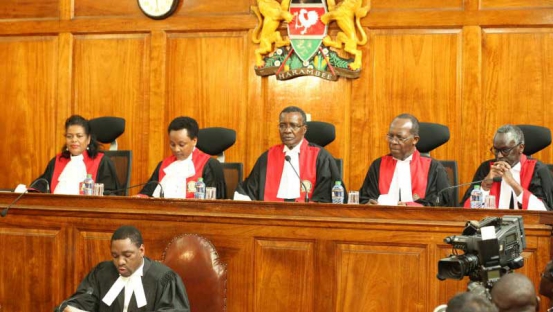×
The Standard e-Paper
Stay Informed, Even Offline

The Supreme Court Wednesday read out a substantial part of its full verdict on the August 8 presidential election petition.
In his opening remarks, Chief Justice David Maraga said the five judges would only read out the main parts of their judgment to which lawyers representing all the parties in the petition agreed.